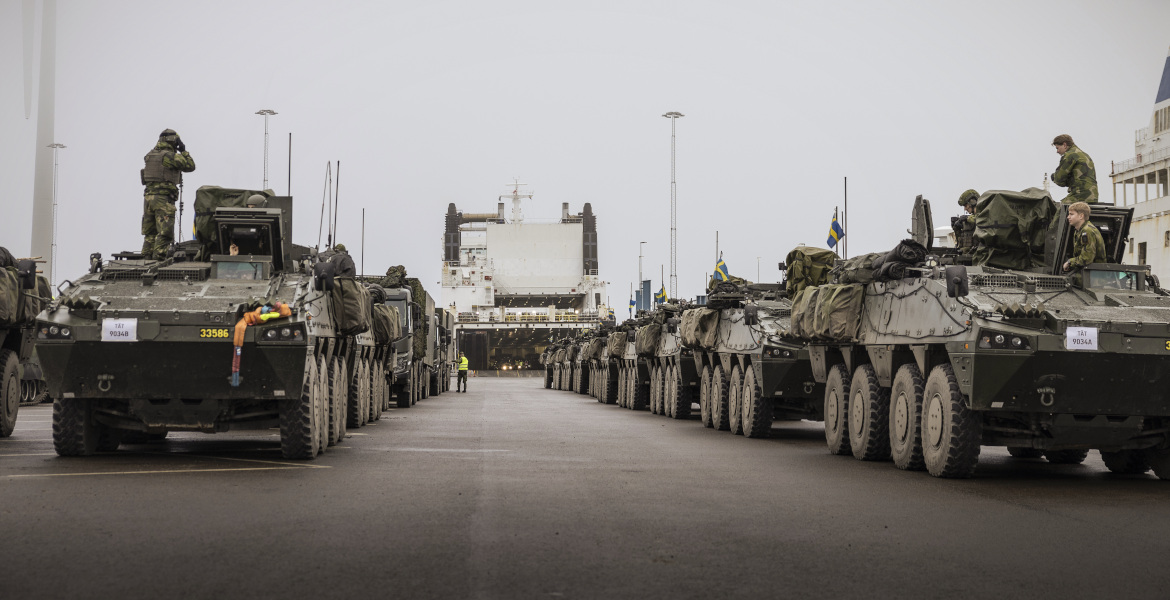Hans Blix, former Swedish Foreign Minister and Director General of the IAEA, is now calling on the Riksdag’s Foreign Affairs Committee to table the bill on the DCA between Sweden and the USA.
Blix believes that there are many ambiguities about what the agreement means. He calls it a “large-scale and unpredictable surrender of Swedish sovereignty” and wonders whether US bombers will be stationed on Swedish soil without explicit Swedish consent.
“The negotiated and proposed agreement contains far-reaching and ten-year commitments to the sovereignty and security of the kingdom and has not been the subject of any public discussion, but has been preceded by a strange silence”, he writes.
Blix goes on to argue that the agreement, which among other things gives the US broad military powers in Sweden and access to Swedish military bases, Swedish waters, airspace and territory, “should not be submitted to the Riksdag for approval until the opportunity has been given for a thorough public discussion”.
He considers it “unacceptable that there are no explicit rules on which measures and activities require specific and explicit Swedish approval before they are initiated”.
“For example, can the stationing of US heavy bombers in Luleå take place without explicit prior Swedish approval? Does the agreement give the US the right – or does the US consider itself entitled under the agreement – to deploy missile batteries on Gotland without the explicit and specific consent of the Swedish government?” he asks.
How is Sweden’s security affected?
According to Blix, there are important differences between the DCA and the Host Nation Agreement previously concluded with NATO to allow for a faster deployment of NATO personnel and material on Swedish soil.
“The MoU is a framework agreement, and for each individual activity a specific and more detailed implementation agreement must be concluded within the limits set by the framework agreement. The DCA does not require a similar agreement. In the absence of such an arrangement, it appears that the DCA’s descriptions of broad US access to, and various activities on, Swedish territory include general pre-approvals”, he says.
“This would not be contrary to international law, but it would be an unusual, extensive and unpredictable surrender of Swedish sovereignty. Have the Swedish political parties examined how their voters feel about this and how different degrees and ways of implementing the agreement might affect the security situation in our corner of Europe?” asks Blix.
The former foreign minister also argues that it would be more “understandable” to enter into such a “far-reaching and sovereignty-restricting agreement” if Sweden were in a “critical or threatening stage” – but points out that we are not in such a situation today.
“A particular reason for the Riksdag to wait to take a position is that we do not now know who will be the US president next year and who will decide when and how the US rights in the agreement will be used”, he concludes.
“Vassal to Washington”
According to peace researcher Frida Stranne and political scientist Trita Parsi, the agreement means that Sweden will become a “subservient state to Washington” and that “American personnel will be able to act outside Swedish law in Sweden, and not even the Swedish security police will be allowed to monitor them.
Acclaimed Swedish writer Jan Guillou takes the same line, describing the agreement as “a capitulation document after a lost war” in which those who criticize the military cooperation are portrayed as “actors who want to harm Sweden’s interests”.









